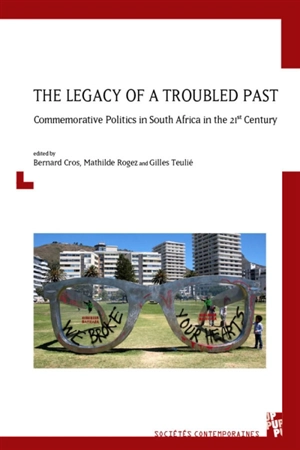
The legacy of a troubled past : commemorative politics in South Africa in the 21st century
Versailles, Lyon 2ᵉ, Lyon 6ᵉ...
Ce que dit l'éditeurThe legacy of a troubled past Commemorative politics in South Africa in the 21st century Since the advent of democracy in 1994, South Africa has been engaged in an unprecedented exercise of national soul- searching, torn between the need to lay to rest centuries of racial conflict and the desire to come to terms with its traumatic history. This book asks whether the country has begun to turn the corner on the legacy of collective hurt. To do so it ranges in scope across 350 years of South African history, encompassing the struggle against the apartheid regime, the downfall of white supremacy, the Truth and Reconciliation Commission and the first 25 years of democracy, up to more recent movements, such as #RhodesMustFall, or the inquests into the 2012 Marikana massacre, that point to the persistence of traumatic memory in contemporary society. The authors assembled here set out to analyse the representation of such memory, how it has been woven into narratives, recorded, preserved and questioned, and how issues of individual and collective responsibility have been grafted onto it through the visual arts, literature, political discourse and public action. In focusing on memory along with its derived forms of memorialisation, collective memory, nostalgia, or postmemory, our contributors pose a fundamental question : is South Africa finally coming to the end of the post-apartheid transition period ? Do the decades of memory work on racial violence and repression examined here hold out hope for the nation to make peace with its past ? |
RésuméDepuis l'avènement de la démocratie en Afrique du Sud en 1994, le pays s'est engagé dans un exercice sans précédent d'auto-analyse nationale, entre volonté de se réconcilier avec les traumatismes de l'histoire et nécessité de mettre un terme à des siècles de conflit racial. Interrogeant la persistance de la mémoire traumatique, les contributeurs font le point sur la transition post-apartheid. ©Electre 2025 |
Caractéristiques Éditeur(s) Date de parution
10 mai 2022
Collection(s)
Sociétés contemporaines
Rayon
Politique
Contributeur(s) Bernard Cros
(Directeur de publication), Mathilde Rogez
(Directeur de publication), Gilles Teulié
(Directeur de publication) EAN
9791032003497
Nombre de pages
206
pages
Reliure
Broché
Dimensions
24.0
cm x
16.0
cm x
1.4
cm
Poids
347
g
|
